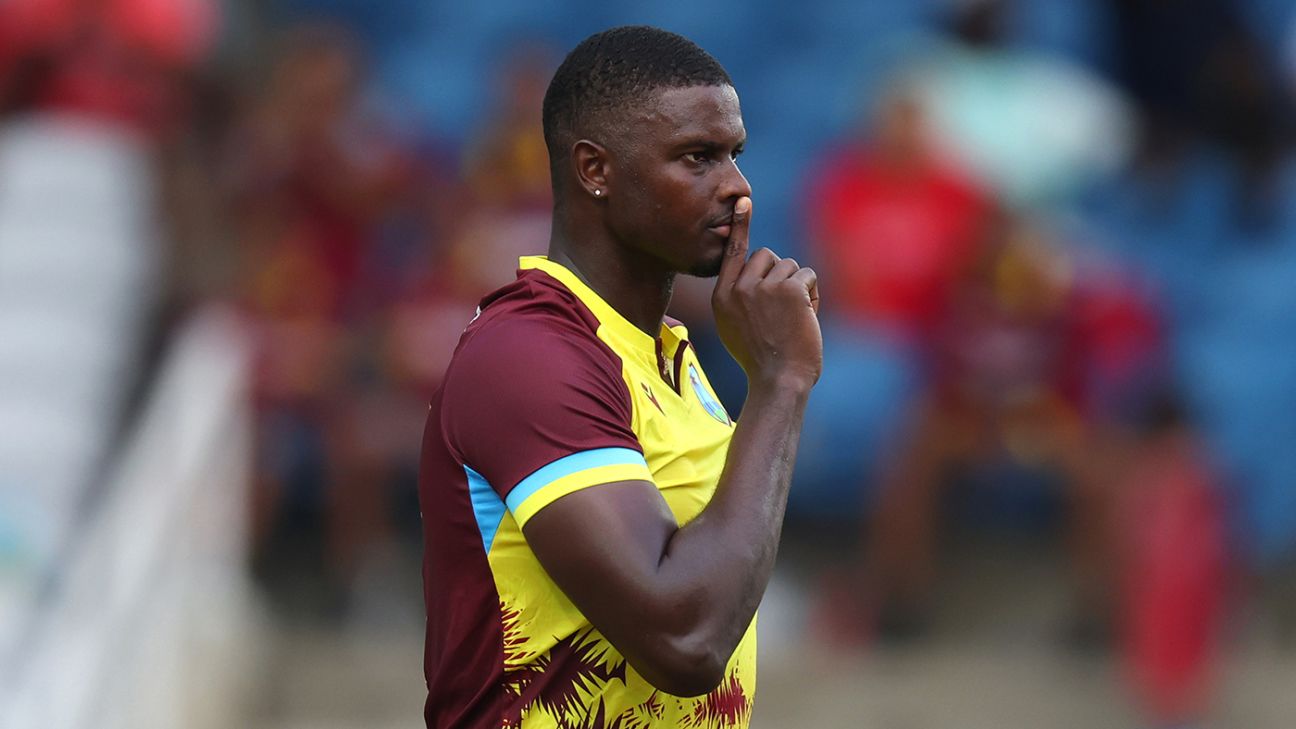Jason Holder: England's frequent tours are 'boosting West Indies' survival'
Written by I Dig Sports
It was a tour that helped to mitigate the ECB's losses during the pandemic, which could have been upwards of 380 million had their entire summer schedule been cancelled. Each of those three Tests was worth approximately 20 million as they helped to fulfil the board's 1.1 billion rights deal with Sky Sports.
"We rely heavily on series between England and India, our revenues tend to come from those two teams. It's our biggest series within any calendar year, and, yeah, it's one that really brings the fans down to the Caribbean and creates a really fun atmosphere.
"So, it's great to have them and to see the fans packing the stadiums as well. There's always a good banter between the West Indian public and English public. So we're thankful that we've been able to have them so many times in as many years. And long may it continue."
"I'm looking forward to the contest," Holder said. "Both teams are in a transitionary phase, so it's going to be keenly contested. England have obviously got a point to prove, and they'll be trying a few different combinations to see what works. And likewise, with West Indies, we've got a lot of youngsters within our cohort, and it is important for them to just gain experience, gain confidence and gain knowledge. I think these series will go a long way to developing our base at a rapid rate."
"The first time I saw him was when I played against him, quite recently, in the CPL," Holder said. "He definitely stood up. He looks a very easy-going player. He's got time, and any top-order batter who shows signs of having time is promising.
"It's important for him to learn and work hard, but the sky's the limit for him. He's scored runs at the levels below, and he's coming in with some confidence. We all remember when we first came into international cricket, when we had that freedom to express yourself. And the more he expresses himself and gains knowledge and confidence, that will put us in good stead in years to come.
"We've never been short of talent," Holder added. "It's just a matter of harnessing the talent and making sure that we make full use of it. There's no doubt that he's one for the future, and I hope that West Indies put things in place to keep him in and around the system, and make sure he develops a steady rate so that we can utilise him in years to come."
Holder himself hasn't been involved in West Indies' white-ball set-up since pulling out of their T20 World Cup plans through injury in June, and will instead be a studio pundit for TNT in the UK throughout the eight-match tour.
"I haven't retired, that is still a long way off," he said, with an eye on the next 50-over World Cup in 2027. "We've still got a few more series to play before then. So I'm just working myself back to full fitness, to get back on the field and be able to play at full capacity."
"When you look at our overall performance, we probably feel a little bit disappointed that we fell short. But the beauty of this squad is it's not too old. We've still got a quite young-ish side that can stay together for the next two years, to fight for another trophy in 2026. So I don't think is all is lost. We need to understand our strengths and weaknesses, and just keep improving."
In the meantime, he anticipates another high-scoring showdown between two aggressive white-ball outfits, one in which the Caribbean's notoriously fickle winds could once again play a big part in the tactical battle that unfolds.
"It's a really crucial point," he said. "The wind factor has always been a massive contributing factor to whether teams bat or bowl in the Caribbean, because it plays a massive part in the actual game. It tends to sway your tactics a little bit, in the sense where you feel more comfortable chasing because by then you know you've got a big side and a small side, for hitting with and against the wind.
"It's always 50/50 in the Caribbean when it comes to that wind factor, because you can set up a team with left- and right-handers, and just continuously use your power throughout the entire innings.
"Obviously, in one-day cricket, it's a bit longer so it's more strategic, where you have to actually build an innings. But when it comes to going hell for leather, it's a matter of being as spot on as possible with the tactics, because the ball can travel in the Caribbean."
England, clearly, will be no strangers to the conditions after three bilateral tours plus the T20 World Cup in recent times, and Holder acknowledged that Antigua in particular will be something of a home from home, after four matches there in the past 12 months alone.
"The English have been frequenting the Caribbean as much they possibly can. They've got a young side, but the majority of their senior players have been to the Caribbean multiple times, and they'll be able to guide the younger players within this squad as to how to how to get around the conditions in the Caribbean."
Andrew Miller is UK editor of ESPNcricinfo. @miller_cricket















 Phone: (800) 737. 6040
Phone: (800) 737. 6040 Fax: (800) 825 5558
Fax: (800) 825 5558 Website:
Website:  Email:
Email: 






